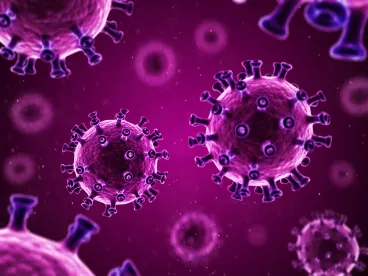McDermott+ Consulting is pleased to provide the McDermottPlus Check-Up, your regular update on health care policy from Washington, DC.
This Week’s Dose
The Senate passed, and the President signed, a Continuing Resolution (CR) to fund the government. House Democrats passed another coronavirus (COVID-19) relief bill, though negotiations with the White House remain stalled.
President and First Lady Tested Positive for COVID-19.
The announcement came early Friday hours after reports that a close aide to the President tested positive, and three days after Trump attended the first presidential debate with Joe Biden. The White House physician released a statement saying he expects the President to continue carrying out his duties, and President Trump indicated that he and the First Lady are quarantining as they recover. The news could have significant implications for the election, potentially preventing the President from campaigning in the final weeks, as well as for how this Administration views and approaches COVID-19 response plans.
Congress
Senate and White House Approved CR.
The measure is the same version that passed the House of Representatives last week and will fund the government at current levels through December 11, 2020. The CR also extends funding for a number public health, Medicare and Medicaid programs and grants some relief for recipients of Accelerated and Advance Payment (AAP) loans. Specifically, it lengthens the recoupment period for AAP loans to one year (which is currently four months after initial payment) and reduces the offset amount to 25% for the first 11 months, 50% for the next six months, with 29 months to repay the balance in full. It also reduces the interest rate on unpaid balances from nearly 10% to 4%. The CR makes December 11 the next major legislative deadline when lawmakers will have to reach a deal to avoid a government shutdown. It comes after the election, but before the next Congress is sworn in, meaning the dynamics of the next round of government funding negotiations will depend heavily on the outcome of the November election.
House Democrats Passed COVID-19 Relief Package.
The bill represents a scaled down version of the Health and Economic Recovery Omnibus Emergency Solutions (HEROES) Act that the House passed along party lines on May 15. The healthcare provisions largely mirror the original bill, including $75 billion for testing, contact tracing and other activities related to COVID-19, a 14% increase in the federal medical assistance percentage through September 30, 2021, followed by a 6.2% increase through the end of the public health emergency (PHE), and a temporary 2.5% increase in Medicaid disproportionate share hospital allotments. A
Administration
Administration Announced PRF Phase 3 General Distribution.
The Department of Health and Human Services (HHS) announced that the new distribution will be based on financial losses and changes in operating expenses caused by COVID-19. Providers who previously received General Distribution payments, as well as a new category for behavioral health providers and providers who began operating in 2020, are eligible to apply. Applications will be open October 5, 2020, through November 6, 2020, but HHS encourages providers to apply early. HHS also recently issued guidance to PRF recipients detailing information that must be reported to HHS by February 15, 2021, with the reporting portal slated to open January 15, 2021. This guidance has been met with questions and concerns from stakeholders, some of whom have been advocating for changes to the guidance. Although changes to the reporting guidance are possible, providers may not receive additional clarity prior to the November 6, 2020, deadline for submitting the newly announced Phase 3 application.
Administration Announced Distribution of Rapid COVID-19 Tests to States.
According to the announcement, the Administration will distribute 100 million tests to states by the end of year to support school reopening and other critical infrastructure. The tests, which the Administration commissioned in August, are cheaper and faster than laboratory tests and were initially deployed in nursing homes earlier this year. The announcement comes as health officials brace for a surge in COVID-19 cases this fall and winter.
States
Missouri Submitted Application to Expand Medicaid for Former Foster Youth.
The Section 1115 waiver proposal would provide Medicaid coverage for Missouri residents who are former foster care youth under age 26, who were in foster care in another state for at least six months and were in foster care at the time they turned 18, and who were enrolled in Medicaid while in foster care. The Substance Abuse-Disorder Prevention that Promotes Opioid Recovery and Treatment (SUPPORT) for Patients and Communities Act, which was signed into law at the end of 2018, authorizes federal matching funds for Medicaid expansion for former foster youth beginning January 1, 2023. Therefore, Missouri is requesting an 1115 waiver to cover the population until the SUPPORT Act authority takes effect. CMS will accept comments on the proposal though October 28, 2020.
Quick Hits
-
The House passed the Helping Medicaid Offer Maternity Services Act (H.R. 4996), which would allow states to expand Medicaid eligibility for postpartum women from the current 60 days to one year.
-
The House Oversight and Reform Committee held a two-part hearing on drug prices with the heads of several leading manufacturers, and HHS Secretary Alex Azar testified before the House Select Subcommittee on the Coronavirus Crisis.
-
House Oversight and Reform Committee Democrats released a report, which found that drug companies raised prices exponentially to boost profits.
-
HHS extended the COVID-19 PHE for an additional 90 days effective October 23, 2020. It will now expire at the end of January 2021 unless otherwise rescinded.
-
In advance of the Hospital Price Transparency Final Rule taking effect on January 1, 2021, CMS created a new webpage with information for hospitals and consumers.
-
CMS released updated testing methodology that lowers the testing threshold for nursing homes.
-
The National Institutes of Health awarded approximately $234 million to 32 institutions in an effort to improve COVID-19 testing for underserved and vulnerable populations.
-
Insurers asked a full federal appeals court to review a case concerning whether the federal government owes insurers unpaid cost-sharing reductions. A three-judge panel ruled in favor of the plans in August 2020 but held that the government could repay less than what the plans had requested.
-
The Medicare Payment Advisory Commission held a virtual public meeting on October 1 and 2. The meeting agenda and presentation materials are available here.





 />i
/>i

